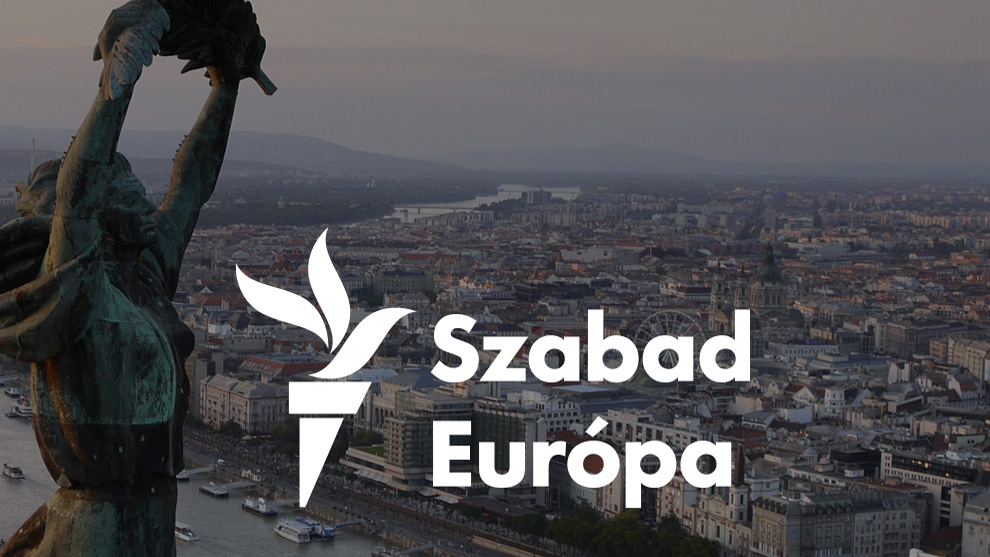RFE/RL Is Back With the News in Hungary
Audiences in Hungary woke this morning to Szabad Európa, the 21st-century update of Radio Free Europe/Radio Liberty’s (RFE/RL) storied Hungarian Service.

WASHINGTON, D.C. – Audiences in Hungary woke this morning to Szabad Európa, the 21st-century update of Radio Free Europe/Radio Liberty’s (RFE/RL) storied Hungarian Service, which launched today on digital platforms to provide objective, fact-based reporting in a country that has witnessed a decline in diverse media voices.
“We are very excited to return to Hungary with state-of-the-art programming and RFE/RL’s signature commitment to serving the public interest by reporting on the issues that matter most to our audiences,” said Acting President Daisy Sindelar. “We have an outstanding team of local journalists determined to be the go-to source for reliable, unbiased news.”
On its first day online, the Hungarian Service – publishing on szabadeuropa.hu and on Facebook and Instagram – led with a feature on the digital divide revealed by the coronavirus pandemic, contrasting the experiences of poorer and richer families as they try to school their children. The Service is also covering the on-going standoff between the government and striking students over leadership of Budapest’s landmark University for Theater and Film Arts (SZFE). A special project on the Hungarian parliament 30 years after the fall of Communism will be published this week. Regular features will include a 3-minute morning newsletter, a weekly dispatch on the European Union, and podcasts that take a fresh look at history while optimizing RFE/RL’s trove of rich radio archives. The Service is also investing in original investigative reporting, while partnering with local outlets to leverage resources for broad-scope and high-profile reports.
The Service is led by Gyula Csák, formerly a journalist and editor with the pan-European network Euronews and a producer and Hungary correspondent for the BBC. Csák has also worked as a senior news executive for numerous Hungarian outlets including InfoRádió, Kossuth Rádió, Hírsarok, and Rádió C, and blogged for Hungary’s popular blog.hu platform.
RFE/RL’s return to Hungary marks its third entry into an EU member state. In 2019 it relaunched work in Bulgaria and Romania – where, like Hungary, it played a critical role during the Cold War, reaching well over 50 percent of adult audiences in the 1980s with uncensored radio news.
In 1991, soon after independence, then-leader of the Fidesz parliamentary faction Viktor Orban commended the work of the Hungarian Service in an address to the country’s parliament. Orban, now prime minister, told the gathering that Szabad Európa Rádió “rendered a significant service to the Hungarian people” and “continues to be indispensable today and in the future as well on the platform of free Hungarian telecommunication.”
RFE/RL exited Hungary in 1993, but announced plans to return in 2019, as declining media pluralism and disinformation degraded the information landscape. That year, a report by the global monitor Freedom House described Hungary’s “great success in snuffing out critical journalism.” Reporters Without Borders ranked Hungary 87th among 180 countries surveyed, downgrading it 14 places from 2018 and 23 places from five years before.
For more information, contact press@rferl.org.
###
About RFE/RL
Radio Free Europe/Radio Liberty (RFE/RL) is a private, independent international news organization whose programs — radio, Internet, television, and mobile — reach influential audiences in 23 countries, including Russia, Ukraine, Iran, Afghanistan, Pakistan, the republics of Central Asia and the Caucasus. It is funded by the U.S. Congress through USAGM.